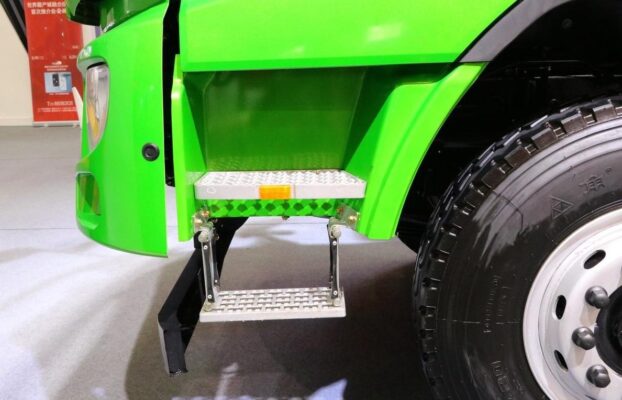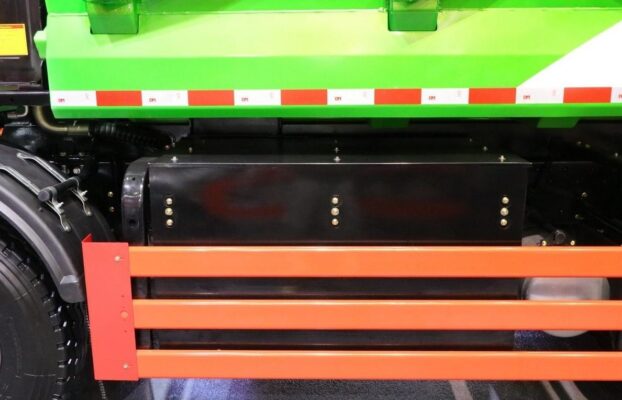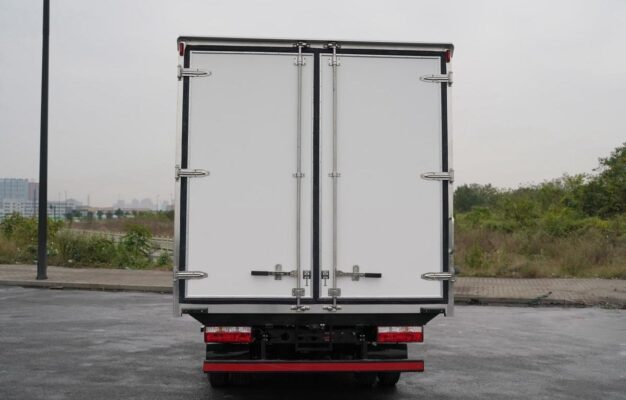Electric logistics vehicles are currently among the electric vehicles with a high utilization frequency. They bear resemblance to the electric vehicles we commonly drive, with the key distinction being that الیکٹرک لاجسٹکس گاڑیs are primarily employed in logistics transportation and related tasks. So, precisely what constitutes an الیکٹرک لاجسٹکس گاڑی? Now, the author will furnish you with a detailed elaboration on “What is an Electric Logistics Vehicle“.

- Electric logistics vehicles are mobile container apparatuses for the transportation and storage of material units, powered by on-board power sources. They are also referred to as electric logistics vans, electric logistics transfer vehicles, and electric goods turnover vehicles. Based on the principle of motor drive, الیکٹرک لاجسٹکس گاڑیs can be classified into two main types: DC (Direct Current) electric drive vehicles and frequency conversion الیکٹرک لاجسٹکس گاڑیs.
Let’s explore these types in more depth. DC electric drive vehicles operate using a direct current power supply. They are often characterized by simpler circuitry and control systems but may have limitations in terms of speed regulation and energy efficiency. Frequency conversion الیکٹرک لاجسٹکس گاڑیs, on the other hand, utilize advanced frequency conversion technology to control the motor speed and torque. This enables more precise control, better energy utilization, and improved overall performance, especially in scenarios with varying load and speed requirements.

- Nationwide, there are over 1,600 enterprises engaged in the manufacturing of electric vehicles, all possessing the capacity to produce الیکٹرک لاجسٹکس گاڑیs. The market has fully acknowledged the merits of الیکٹرک لاجسٹکس گاڑیs, which include high peak power capabilities, a robust overload tolerance, smooth driving experiences, a compact structure, a small footprint, lightweight construction, and the absence of maintenance requirements.
The high peak power of الیکٹرک لاجسٹکس گاڑیs ensures they can handle sudden and demanding power needs, such as rapid acceleration or climbing steep gradients while laden with cargo. The strong overload capacity allows them to carry heavier loads without compromising performance or safety. The smooth driving characteristic enhances the comfort of the driver and reduces the risk of cargo damage due to excessive vibrations. The compact and lightweight design not only makes them maneuverable in congested urban areas but also contributes to energy savings and extended battery life.

- For the sake of operational convenience, الیکٹرک لاجسٹکس گاڑیs have deviated from the traditional four-wheel design in their wheel configuration. They have boldly adopted the design principle of three-wheel motorcycles. The rear wheels are two directional wheels, while the front wheel is a universal wheel, ensuring the agile rotation of the vehicle. The vehicle-mounted flatbed has a loading capacity ranging from 1000 kilograms to 1200 kilograms. During the transportation process, it safeguards the safety of the materials on one hand and prevents the sorted and equipped products from becoming disorganized. Additionally, loading and unloading operations are carried out with remarkable ease.
This unique wheel and flatbed design offers several advantages. The three-wheel configuration provides enhanced maneuverability, allowing the vehicle to navigate narrow alleys, crowded marketplaces, and tight loading docks with greater ease. The large loading capacity of the flatbed caters to the diverse needs of logistics operations, accommodating a significant volume and weight of goods. The stability and safety features of the flatbed ensure that the cargo remains intact and undamaged throughout the transportation journey.

The above encompasses all the content related to “Electric Logistics Vehicles”. It is hoped that this information proves beneficial to everyone. Should you have any inquiries or require further assistance, feel free to contact us at any time.
آخر میں, electric logistics vehicles play a crucial role in modern logistics and distribution systems. Their innovative designs and features make them an efficient and practical choice for transporting goods in various urban and commercial environments. Continued advancements in technology and design are likely to further enhance their performance and contribution to the logistics industry.